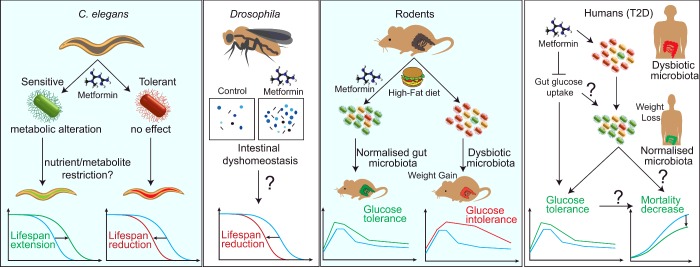Figure 3. Effects of metformin in gut physiology to regulate T2D and survival in model organisms and humans.
Metformin increases C. elegans lifespan when co-cultured with a sensitive but not a tolerant E. coli strain. In Drosophila, high concentrations of metformin lead to intestinal dyshomoeostasis and increased concentration of faecal output that correlates with an observed shortening of lifespan. Metformin normalizes the gut microbiota of rodents on a high-fat diet and improves glucose homoeostasis due to effects on the gut microbiota. In T2D diabetic patients, metformin promotes weight loss and improved glucose tolerance either by reducing gut glucose uptake or by direct alterations of the gut microbiota which can ultimately lead to increased survival.

